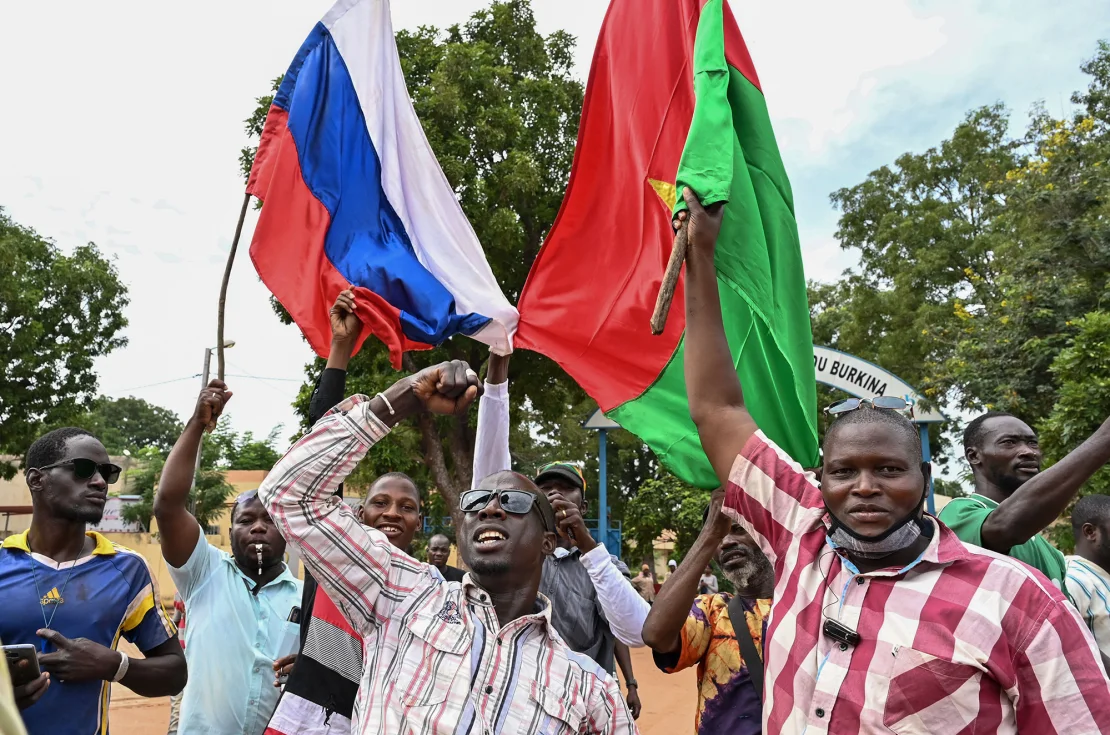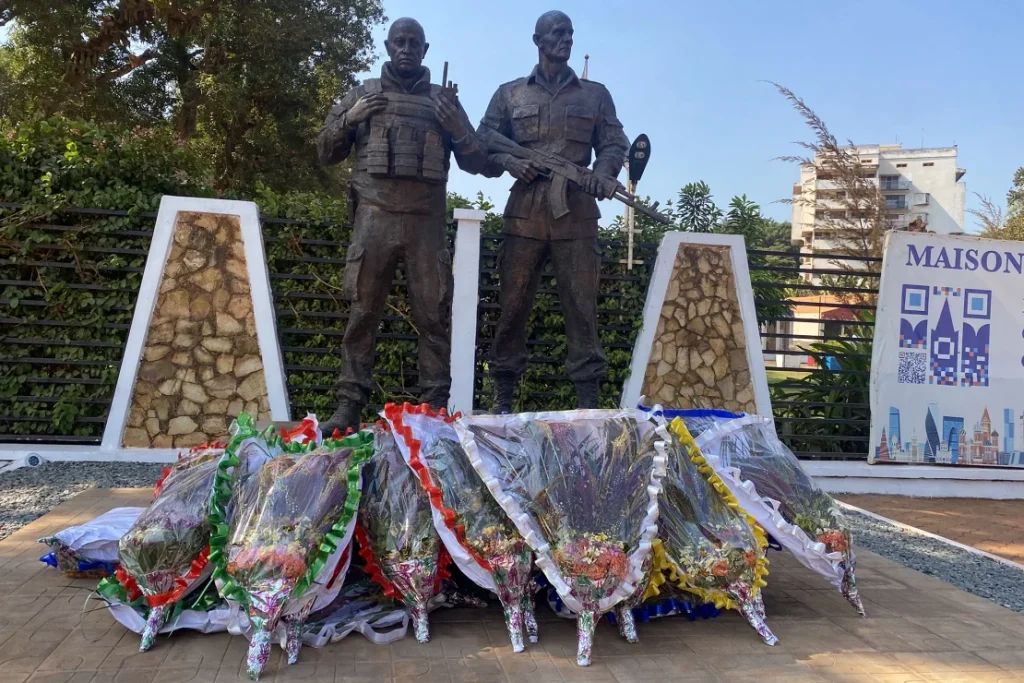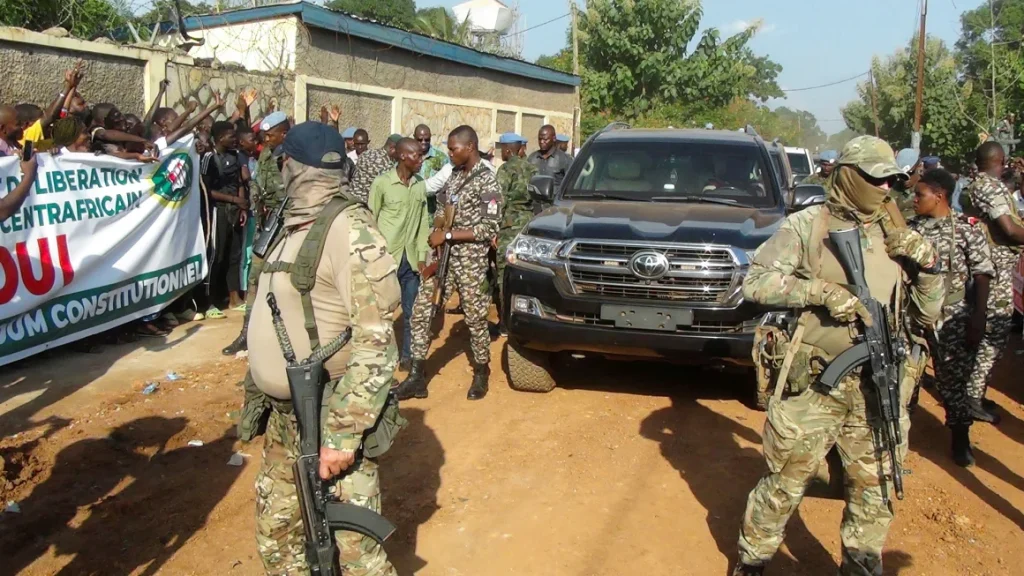
Our Correspondent | Africa Guardian

While Moscow’s ally Bashar al-Assad was losing his grip on Syria, Russian-backed mercenaries were bolstering the presidency of Faustin-Archange Touadéra in the conflict-ridden Central African Republic (CAR). Protected by the Wagner Group, a private Russian military force, Touadéra remains in power despite mounting resistance from armed groups like the Coalition of Patriots for Change (CPC-F).
“Without Wagner’s protection, he wouldn’t be president,” Aboubakar Siddick, CPC-F’s spokesperson, told CNN, adding that the group draws inspiration from Assad’s recent ouster. Siddick emphasized, “Touadéra’s removal is essential.”
Highlighting its focus on Africa, Vladimir Putin recently met Touadéra in Moscow, marking Putin’s first international meeting this year. Kremlin spokesman Dmitry Peskov described the CAR relationship as encompassing “highly sensitive areas related to security,” signaling Russia’s intent to deepen ties.
Russia’s Strategic Pivot to Africa
CAR’s ongoing instability mirrors that of other African nations where Russia has capitalized on security vacuums to expand its influence. In the mineral-rich Sahel region, recurring coups and insurgencies have driven nations like Niger, Mali, and Burkina Faso to dismiss Western troops in favor of Russian support. The anti-Western sentiment, often fueled by Russian disinformation campaigns, has opened doors for Moscow to consolidate its presence.
Former French colonies Ivory Coast and Chad have followed suit, calling for the withdrawal of French forces. Even non-French colonies like Equatorial Guinea are turning to Russia. In 2022, Equatorial Guinea deployed 200 Russian military instructors to protect President Teodoro Obiang’s regime, further solidifying Moscow’s reach.
Wagner’s Role in Africa

Since 2018, Wagner has operated extensively in CAR, becoming the dominant force after French troops departed in 2022. Statues honoring Wagner’s late leaders Yevgeny Prigozhin and Dmitry Utkin have been unveiled in the capital, Bangui, symbolizing the group’s central role in CAR’s defense strategy. Touadéra publicly praised Wagner’s contributions, claiming its support has stabilized CAR and empowered its military to repel terrorist threats.
However, Wagner’s involvement in CAR and other nations often comes at a price. The mercenary group reportedly secures lucrative mining concessions in exchange for military services. A CNN investigation found that companies linked to Wagner have mined CAR’s Ndassima gold mine, valued at over $1 billion, without government oversight. Such operations fuel Russia’s economy and its war in Ukraine, circumventing Western sanctions.
Human Rights Concerns and Global Competition
Wagner’s activities have drawn widespread criticism for human rights violations, including alleged extrajudicial killings and torture in CAR and Mali. While CAR’s government touts its partnership with Russia as a “win-win,” critics argue it enables autocratic regimes while exploiting local resources.
Russia isn’t the only power vying for influence in Africa. China has established itself as the continent’s top trading partner, investing billions in infrastructure through its Belt and Road Initiative. While Beijing emphasizes economic ties, Russia focuses on security, providing arms and military support. Both nations have faced criticism for ignoring democracy and human rights concerns in their dealings with African states.
The Future of Russian Influence in Africa
As African nations seek alternatives to Western partnerships, Russia’s appeal lies in its ability to provide security solutions tailored to unstable regions. However, this reliance comes at significant economic, social, and ethical costs. Whether Moscow’s influence will endure depends on its ability to balance its quest for resources with the aspirations of African nations striving for stability and prosperity.
___
